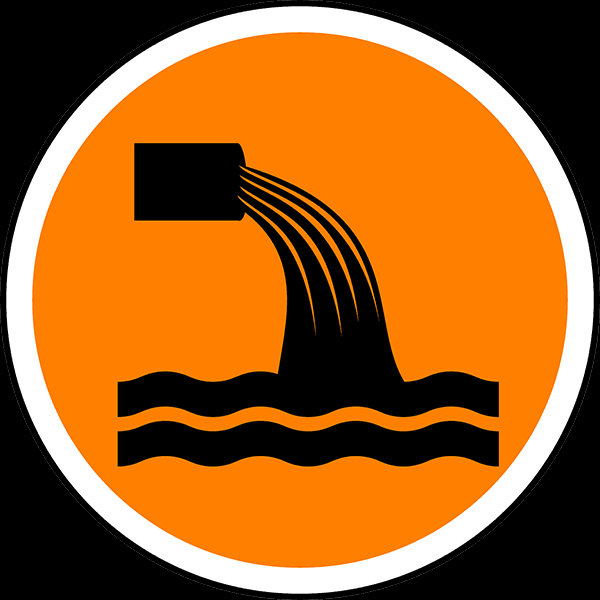Top Guidelines Of Reclaim Waste
Top Guidelines Of Reclaim Waste
Blog Article
The Of Reclaim Waste
Table of ContentsThe Buzz on Reclaim WasteThe Greatest Guide To Reclaim WasteReclaim Waste Fundamentals ExplainedSome Known Details About Reclaim Waste What Does Reclaim Waste Mean?
Domestic sewer waste refers to the waste and items from a residential septic tank. The correct management and disposal of residential sewage waste need liquid waste to be moved to a sewage treatment plant where the proper techniques and devices are applied to purify and dispose of waste.
Commercial waste typically consists of potential threats, such as flammable materials or a combination of fluid and strong waste products, and requires an extra advanced and in-depth disposal procedure. The disposal of industrial waste commonly involves the filtering of waste prior to transport to guarantee risk-free and proper disposal. Industrial waste is created from results and overflow of industrial procedures and manufacturing.
This kind of waste can not utilize the very same sewer management transport or processes as septic or commercial liquids. The hazardous waste monitoring process needs the inspection and testing of fluid waste prior to it undertakes the disposal process (liquid waste removal). Drainage waste is the fluid waste that originates from drainage and excess stormwater in highly inhabited locations or cities
Runoff waste can trigger contamination and flooding if not handled appropriately. Find out more regarding sewage system cleaning and waste monitoring. Ensuring proper waste monitoring can protect against catastrophes and minimize ecological injury. Both people in property settings and professionals in commercial or manufacturing markets can gain from understanding the processes and regulations of fluid waste monitoring.
Fascination About Reclaim Waste
Contact PROS Providers today to learn more about our waste administration and disposal solutions and the appropriate means to look after the fluid waste you produce.
(https://fliphtml5.com/homepage/kekhp)This so-called 'wastewater' is not only a vital resource however, after therapy, will be released to our land, rivers or the sea. Utilized water from commodes, showers, baths, kitchen sinks, washings and commercial processes is recognized as wastewater.

water made use of to cool equipment or clean plant and tools). Stormwater, a form of wastewater, is runoff that streams from farming and metropolitan locations such as roof coverings, parks, gardens, roadways, courses and rain gutters right into stormwater drains, after rainfall. Stormwater flows untreated straight to regional creeks or rivers, eventually reaching the sea.
The 15-Second Trick For Reclaim Waste
In Queensland, most wastewater is treated at sewer therapy plants. Wastewater is delivered from residential or industrial websites through a system of sewers and pump stations, called sewage reticulation, to a sewer therapy plant. Local federal governments construct, maintain and operate most sewage therapy plants. Operators are accredited under the Environmental Management Act 1994 to discharge cured wastewater at an acceptable environmental standard right into rivers.
The Division of Natural Resources advises city governments concerning handling, operating and keeping sewage systems and therapy plants. In unsewered areas, city governments may call for owners to mount specific or house sewer treatment systems to treat domestic wastewater from bathrooms, cooking areas, bathrooms and washings. The Division of Natural Resources authorises using household systems when they are confirmed to be reliable.
In some new class, treatment of some stormwater to eliminate litter, sand and crushed rock has started utilizing gross contaminant catches. Wastewater treatment takes place in 4 stages: Gets rid of strong issue.
Wastewater then streams into big tanks where solids settle and are removed as sludge. Oil and residue are skimmed from the surface area. Utilizes small living organisms called micro-organisms to damage down and remove continuing to be liquified wastes and great bits. Micro-organisms and wastes are incorporated in the sludge. Gets rid of nitrogen and phosphorus nutrients that might cause algal blossoms in our rivers and intimidate water life.
Not known Factual Statements About Reclaim Waste
Nutrient removal is not available at all sewage therapy plants due to the fact that it calls for pricey specialist devices. Clear liquid effluent generated after therapy might still have disease-causing micro-organisms - industrial wastewater treatment.

This usually implies wastewater has actually to be dealt with or pollutants gotten rid of prior to it can be released to waterways. The majority of wastewater flows right into the sewerage system. Under the Act, city governments carry out Going Here approvals and permits for eco pertinent activities (ERAs) entailing wastewater launches that might have a neighborhood influence. The department administers authorizations and licences to Periods entailing wastewater releases that might have a local or statewide effect.
Little Known Facts About Reclaim Waste.
Otherwise, examples are taken for lab evaluation. Commonly numerous examinations are required to establish the degrees of each of the different toxins such as oils, heavy steels and pesticides in water. Surveillance supplies factual information regarding water quality and can confirm that permit problems are being fulfilled. The information gotten via monitoring offers the basis for making water quality decisions.
Report this page